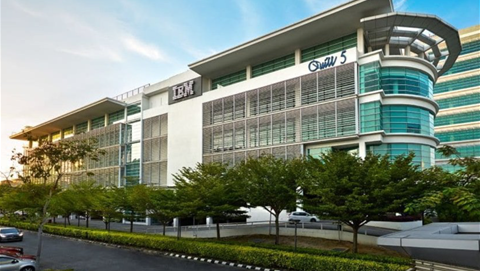Region-specific pressures will allow just 40% of APAC firms to pivot to anywhere-work versus 70% globally, in Forrester’s 2022 Predictions for Asia Pacific, released this week.
One of the reasons why fewer APAC firms will make the shift is due to the region’s large manufacturing and contact centre industries, which typically require a stronger physical presence in their facilities.
In the region’s large manufacturing sector, only 32% of workers in the can work anywhere. Similarly, outsourcing firms with purpose-built, secure campuses and high availability facilities cannot provide the same level of service in remote locations with poor infrastructure.
Employees, unions, and regulators will also push back on contact centre operators that insist on surveilling employees working from home. Additionally, Forrester data found that 65% of APAC information workers are eager to return to the office, with high-density extended-family living likely accounting for this trend: Fifty-eight percent of employees say they are less productive working at home during COVID-19, compared with 46% globally.
“Firms operating in APAC need a region-aligned anywhere-work strategy that balances employee expectations with the feasibility of hybrid work approaches,” Forrester said.
Pent up eagerness to return to work
Another noticeable trend for firms in the region to consider is the eagerness of 65% of information workers to return to the office due to high-density, extended-family living situations — working from home during the pandemic made them feel less productive.
Striking the right balance between in-person job requirements and employee preferences will be critical for companies in APAC, or they will risk alienating their workforce and potentially pushing them to find other opportunities.
Other highlights from Forrester’s 2022 Asia Pacific Predictions include:
- Trust will become a key business imperative.
The world is in a major crisis of trust, driven by concerns over public health, cybersecurity, data privacy, and sustainability. Asia Pacific’s financial services industry will be the first to act upon the trust imperative.
Companies that ignore the trust imperative will lose 10% to 40% of their customers, starting with those unwilling to forgive firms for breaching their trust.
- The number of firms in Asia Pacific to appoint a dedicated sustainability lead will be less than half the global average.
Values-based consumers have put the pressure on firms to elevate their sustainability efforts, but many such plans have remained performative. Only 30% of APAC purchase influencers say their firms are taking real action such as making their sustainability efforts more transparent and reducing their carbon footprint or e-waste.
Also, just 26% of Fortune Global 200 firms in the region have appointed a sustainability lead at the senior level, as compared to 81% in EMEA and 92% in North America.
- At least 1 billion people will access world-leading digital government services.
Governments in Asia Pacific lead the world in implementing the three pillars of a digital society: digital identity, digital currency, and data interoperability.
Countries like Singapore, India, and Australia already have established digital identity solutions, and more than 20 million Chinese already use the digital yuan, with more trials in the works.
- Thirty percent of Asia Pacific firms with cloud-first strategies will shift to cloud-native.
Cloud-native technologies will transcend all major technology domains, including big data, AI, and the internet of things.
By embracing a cloud-native approach, these firms will accelerate enterprise modernisation and implement future fit technology strategies. But this shift will be slow compared to North America and EMEA.

Too few, however, will fully pivot from the current health crisis to the looming climate crisis. Business leaders must adapt to this new reality, laying the groundwork for bold decisions. Creativity, resilience, and agility — fuelled by strong customer understanding and smart technology investments — will separate leaders and laggards, no matter the industry.
- Michael Barnes, Vice President and Research Director at Forrester
“In 2022, after nearly two years of reactively responding to the COVID-19 pandemic, firms in Asia Pacific will finally be able to proactively address changing customer and employee expectations,” said Michael Barnes, Vice President and Research Director at Forrester.
“Too few, however, will fully pivot from the current health crisis to the looming climate crisis. Business leaders must adapt to this new reality, laying the groundwork for bold decisions. Creativity, resilience, and agility — fuelled by strong customer understanding and smart technology investments — will separate leaders and laggards, no matter the industry.”
Forrester’s Predictions reports analyse the dynamics and trends in different disciplines and industries, including technology and innovation, customer experience (CX), employee experience (EX), and B2C and B2B marketing.
Forrester believes that going into the new year, the demands of customers — for seamless cross-channel experiences, convenience, reassurance, and commitment to environmental, social, and governance (ESG) values — will only grow stronger.










